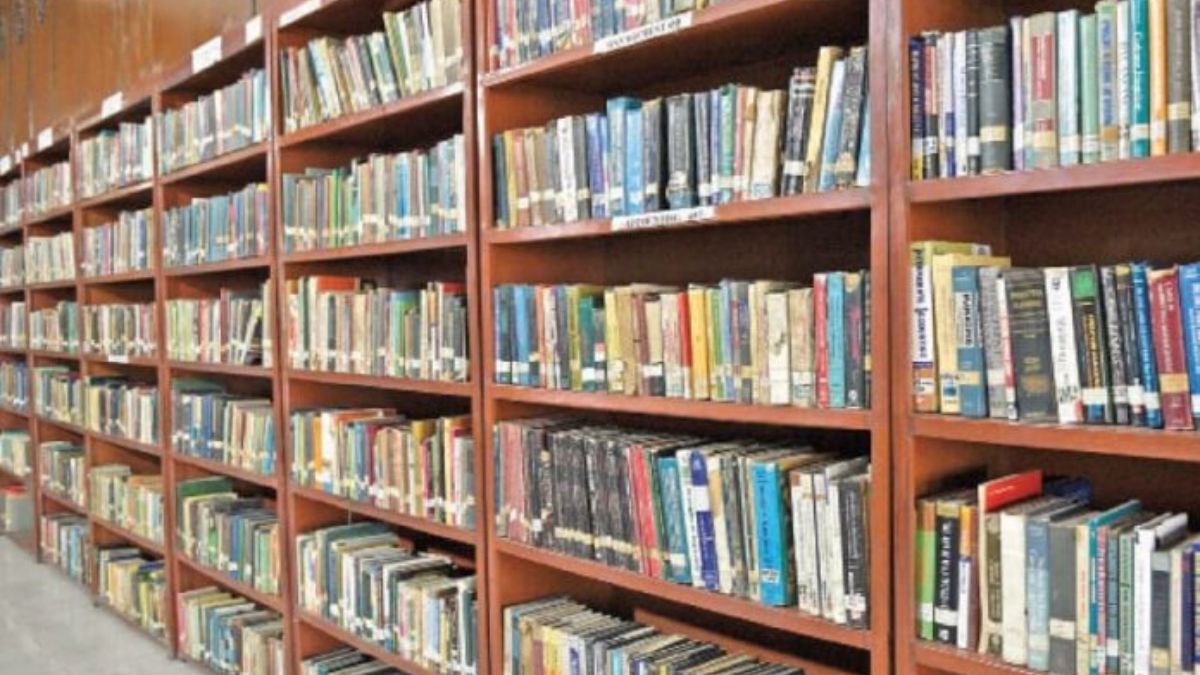Libraries are vital to a nation’s educational and cultural growth. In Pakistan, public and private libraries have long served as academic pillars and community hubs. From historic institutions to modern digitized centers, this guide explores the most significant libraries across the country, highlighting their collections, infrastructure, and contributions.
Major National and Public Libraries in Pakistan
National Library of Pakistan – Islamabad
- Founded: 1951
- Collection: Over 400,000 volumes, rare manuscripts, legal depository for all published materials in Pakistan
- Facilities: 15 research rooms, 500-seat capacity, auditorium
- Digitization: 5.4 million scanned newspaper pages, ongoing OCR development
- Public Access: Open to all with registration
Read More: CM visits Children’s Library Complex, reviews facilities
Islamabad Public Library – H-9 Sector
- Collection: 30,000+ books
- Focus: General reading, CSS and academic research
- Timings: Mon–Sat, 9 am to 5 pm
- Membership: Affordable, includes borrowing rights
Quaid Public Library – Fatima Jinnah Park, Islamabad
- Facilities: Children’s reading floor, main hall
- Membership Fee: Rs. 300 registration + Rs. 2,000 refundable security
- Events: Weekly reading sessions and workshops
Provincial and Historical Public Libraries
Punjab Public Library – Lahore
- Established: 1884
- Collection: 300,000+ volumes, 1,500 manuscripts, and 170 magazines
- Facilities: Auditorium, photocopying services, internet access
- Membership: Rs. 300 annual + Rs. 1,000 refundable security
Quaid-e-Azam Library – Lahore (Bagh-e-Jinnah)
- Established: Building from 19th century, library since 1984
- Collection: 141,000 books in multiple languages
- Recent Upgrades: Rs. 71 million for new books, US-funded Lincoln Corner with tablets, smart-library integration
Cantonment Public Library – Rawalpindi
- Founded: 1891
- Collection: 50,000+ books
- Challenges: Limited budget and maintenance
- Facilities: Children’s room, Braille resources, membership-based access
University and Academic Libraries
Punjab University Library – Lahore
- Established: 1873
- Purpose: Extensive academic and research collection
- Services: Digital catalogue, interlibrary loans
Lahore Museum Library
- Established: 1894
- Collection: 30,000+ items focused on history, anthropology, and archaeology
Bait al-Hikmat – Hamdard University, Karachi
- Established: 1989
- Collection: 477,000 books, 1,700 manuscripts, and millions of clippings
- Special Sections: Stamps, coins, audio-visual resources
Leading Private Libraries
Masood Jhandir Research Library – Haveli Lakha, Punjab
- Founded: 1899
- Collection: 360,000 books, 92,000 periodicals, 4,000 manuscripts
- Infrastructure: 21,000 sq. ft., 8 reading halls, auditorium
- Special Items: Over 1,300 rare Qur’anic manuscripts
Defence Central Library – DHA Karachi
- Membership-Based: Offers 6,000 books, reading rooms, cyber café
- Services: Student study zones, digital access, and discussion halls
Hasrat Mohani Memorial Library – Karachi
- Open to Public: Free of charge
- Collection: 10,000+ books on a wide variety of topics
Key Challenges and Recent Developments
- Low Library Density: Fewer than 200 public libraries nationwide
- Balochistan: Severely underserved; local efforts include paid reading rooms in Turbat and Quetta
- Digital Push: National Library leads with massive digitization efforts; Punjab libraries now feature smart-library facilities
- Funding Initiatives: Quaid-e-Azam Library received over Rs. 70 million for updates after nearly three decades
Read More: Multan University of Science and Technology Opens Admissions 2025
Summary Table: Key Libraries in Pakistan
| Library Name | Location | Type | Collection Size | Key Features |
|---|---|---|---|---|
| National Library of Pakistan | Islamabad | National | 400,000+ | Digitization, research halls, legal depository |
| Punjab Public Library | Lahore | Public | 300,000+ | Oldest in Punjab, public access, periodicals |
| Quaid-e-Azam Library | Lahore | Public | 141,000+ | Smart library, tablet-based research |
| Islamabad Public Library | Islamabad (H-9) | Public | 30,000+ | Affordable membership, CSS materials |
| Masood Jhandir Research Library | Haveli Lakha, Punjab | Private | 360,000+ | Rare manuscripts, vast rural facility |
| Bait al-Hikmat | Karachi | Academic | 477,000+ | University library, AV archives, research hub |
| Defence Central Library | Karachi (DHA) | Private/Public | 6,000+ | Cyber café, study areas, private collection |
Conclusion
Pakistan’s library network is a blend of colonial-era heritage, state-owned reading spaces, academic repositories, and a few world-class private collections. The digital transformation in cities like Lahore and Islamabad is promising, yet rural and underserved areas need urgent attention. Efforts from both public and private sectors must converge to ensure equal knowledge access across the country.Stay updated with: Bloom Pakistan
Read More: Islamabad to Welcome New Public Library, Safari Park & Golf Course









